GP News – Jan ’16
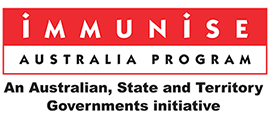
Strengthening Immunisation – New changes effective January 1, 2016
New immunisation requirements came into force on 1 January 2016 in relation to child care benefits and family assistance payments (the Commonwealth) and the enrolment of children in child care (in NSW) as follows:
NSW primary vaccination catch up schedule for children 10 to 19 years
From 1 January 2016, free vaccines will be available for children aged 10-19 years who require catch-up under the No Jab No Pay measure, introduced by the Australian Government in November 2015. Vaccines for children less than 10 years of age are free under the National Immunisation Program.
CLICK HERE for the NSW primary vaccination catch up schedule for children 10 to 19 years.
GPs are able to order catch-up vaccines on the online vaccine ordering website now.
Strengthening vaccination requirements for child care (NSW)
As the Commonwealth conscientious objection form is no longer available, an Interim vaccination objection form for enrolment in NSW child care centres has been developed for use during 2016 while the Public Health Act undergoes its scheduled review process. These interim arrangements apply to children enrolled after 1 January 2016 only.
CLICK HERE for Interim vaccination objection form for enrolment in NSW child care centres.
These changes will be discussed at the RACGP Twilight online webinar scheduled for Wednesday 10 February 2016.
To support conversations with vaccine hesitant parents the Immunise Australia website provides fact sheets that cover topics such as autism, immunity, safety and ingredients. CLICK HERE to view or print the fact sheets.
These new resources and more are available on the Immunise Australia website:
http://www.immunise.health.gov.au/.
CAT Plus license and Installation for General Practice
To support quality improvement in General Practice, Sydney North Health Network (SNHN) is offering practices a free licence and installation for the CAT Plus suite of products.
Some of the benefits to having a CAT Plus license include efficient management of your patient population and practice staff can easily identify and target populations for review and management in areas such as chronic disease management.
Ready to sign up your practice with CAT Plus?
CLICK HERE for CAT Plus Installation and Practice User Agreement form (print form and fill-in). Email relevant signed sections to pcait@snhn.org.au
CLICK HERE for more about CAT Plus and its benefits
Women’s Health Ambulatory Care – Do you know their new address?
Women’s Health Ambulatory Care moved to a new site 12 months ago but patients are still being referred to the old address. Women’s Health Ambulatory Care is now located at Level 3 Clinical Services Building. The front entrance is in Westbourne Street. It can also be accessed via the Acute Services Building with a linking corridor to the clinical services building on Level 3 – Royal North Shore Hospital Map.
The main reception phone number is 9463 2377.
For more information on the services available go to the Northern Sydney Local Health District Service directory.
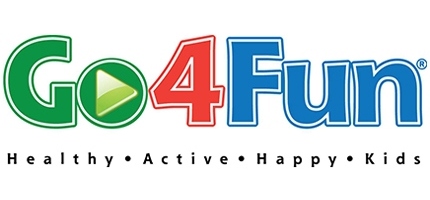
Go4Fun – Free NSW Health overweight & obesity treatment program for children above a healthy weight
Enrolments are now open for a February intake for a free NSW Health overweight and obesity treatment program, for children above a healthy weight.
Go4Fun is an evidence-based children’s overweight and obesity treatment program which shows clinically significant health benefits and improved self-esteem in children above a healthy weight.
The 10 week program involving both children aged 7-13 years and their parents, focuses on developing healthy eating habits, building self-confidence and getting children more active. Sessions run after school and include informative games, fun and active exercise activities, tips on healthy food and portion sizes, label reading, a supermarket tour and more. Since 2011, over 650 Go4Fun programs have been delivered throughout NSW engaging more than 6250 families.
On average, children who participate in Go4Fun achieve positive outcomes including:
- A 0.6kg/m² BMI reduction
- 1.5cm reduction in waist circumference
- An increase of 3.6 hours per week spent being physically active
- A decrease of 2.8 hours per week in sedentary activity
- Increased fitness and self-esteem
- An improved diet including increased fruit & vegetable intake
CLICK HERE for more about Go4Fun
Families can be referred by making a free call to 1800 780 900, visiting www.go4fun.com.au, or contacting the Go4Fun Coordinator on 9976 9532.
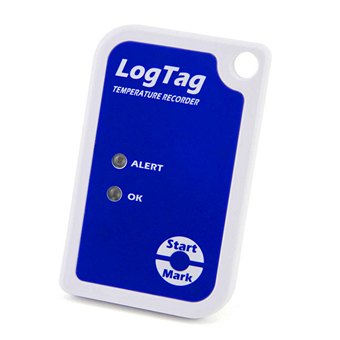
Data logging your vaccine fridges – Bar Fridges are not suitable for vaccine storage!
NSW Health now require all practices to monitor their vaccine fridges with data loggers and download the data weekly, however data does not need to be supplied to NSW Health unless requested. This is in addition to twice daily min/max manual temperature checks of your vaccine fridge.
Temperature data loggers are small electronic devices that continually measure temperatures at pre-set intervals. Easily programmed by your staff via a computer, loggers are placed in the vaccine refrigerator near the temperature probe or vaccines. The logger operates independently on its own battery and is downloaded weekly via a USB to a computer. The results are displayed in a graph and numerical format and allow cold chain breaches to be assessed far more accurately, therefore reducing the chance of vaccine wastage or revaccination.
For an example of a weekly data log report CLICK HERE.
Some of the more commonly used data loggers are listed below:
- Hastings Data Loggers
- Hobo Data Loggers
- LogTag Temperature Loggers
- ThermaData Loggers
- Thermochron Data Loggers
For data logger types CLICK HERE.
Key points about data loggers for vaccine fridges:
- Data loggers continually monitor the temperature of the fridge and operate by battery, independently to the fridge power source so that temperatures are still being monitored, regardless of whether the fridge is operating;
- They can be either internal, as part of the vaccine refrigerator or a separate device;
- For separate data loggers, ensure these are placed close to vaccine stock, to replicate vaccine temperatures as accurately as possible – do not place them against fridge walls or directly on fridge shelves;
- It is recommended that data loggers have their temperature recordings set to every 5 minutes and their alert set to outside +2 and +8 degree range;
- Data logs should be downloaded and reviewed weekly by the person responsible for cold chain, to ensure fridge temperatures have remained within range at all times;
- If there is a temperature excursion greater than 12 degrees and for longer than 15 minutes, contact the PHU on 1300 066 055 for advice;
- Twice daily min/max manual readings still need to be done during opening hours, this requirement is not substituted by a data logger;
- Always remember to reset fridge temperatures after the min/max readings are taken and after fridge temperatures have gone up, for e.g. when restocking;
- Data logger batteries should be replaced according to the manufacturer’s recommendation.
For more information about data loggers and the points to consider when purchasing them, refer to Section 6 of the National Vaccine Storage Guidelines: Strive for 5.
The above information was provided by: Sally Edwards, Immunisation Coordinator Northern Sydney Public Health Unit.
For further information or advice contact the PHU on 1300 066 055.
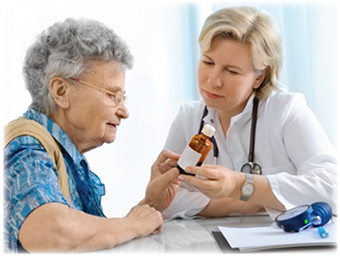
Managing Medicines Safely
The local hospital district is encouraging GPs to review – in consultation with their patients – the patients’ current complete medication list at each visit. GPs are further required where possible to reconcile patients’ medication at high risk transitions points e.g prior to hospital admission and post discharge, as a way of reducing avoidable medication discrepancies and potential adverse drug reactions.
The NSLHD also provide web based resources for patients to help better manage their medicines. GPs can reinforce to their patients the need to keep an up-to-date medication list.
For Patients
CLICK HERE for medication list options
CLICK HERE for downloadable medication list form (for patient to fill-in and keep with them).
For Practices
CLICK HERE to download a A4 sizes poster for your practice highlighting the need for medication safety.
Adverse Drug Reaction Notification
To report an adverse drug reaction or issue relating to medication that has been recently started, changed or stopped after a patients’ recent hospital visit, please fill in the Medication Safety Post-box survey form.

New Australian Government Funded Service Supports Carers
Australia’s 2.7 million carers now have access to a new service to support them in their caring roles.
An initiative of the Australian Government, Carer Gateway provides information about the services and support available for people who care for someone with a disability, chronic illness, dementia, mental illness, or who are frail due to age.
Carer Gateway will provide information for carers online and by phone:
Telephone: Carers can call 1800 422 737 from Monday to Friday between 8am and 6pm for information about services and support available.
Website: A range of information including practical advice on how to care, details about financial and respite support, and how to adjust when caring ends, can be accessed at www.carergateway.gov.au.
Service finder: Carer Gateway website has an interactive service finder to help carers identify local services, including Commonwealth-funded organisations delivering carer support services.
Carer Gateway website also has information for different types of carers including young carers, older carers, working carers, Aboriginal and Torres Strait Islander carers, and culturally and linguistically diverse carers.
This new service does not affect how carers currently access their existing support services.
Resources: To order or download resources such as posters, brochures, magnets or fact sheets CLICK HERE.
For more information about Carer Gateway, visit www.carergateway.gov.au.
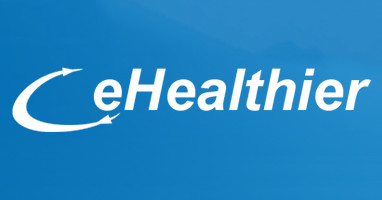
GPs wanted to test new ePROMs application
GPs with an interest in IT, health apps or eHealth are invited to participate in new Patient-Reported Health Outcome Measurements app which is currently being tested for development.
A Patient-Reported Health Outcome Measurements, otherwise known as PROM is a quantified questionnaire that measures a person’s functional health status. Most PROMs are supported by the various medical colleges, and PROM conferences are being held around the developed world.
eHealthier, a doctor-controlled ePROMs start-up company, is in the process of developing GP-initiated, patient-completed ePROM apps and wishes to ensure they meet the needs of local GPs so is currently seeking GPs to help beta test the ePROM apps.
If interested in testing please contact Helen Purdy – T (02) 9432 8243, M 0466 238 682 or hpurdy@snhn.org.au. For more information about ePROMs, CLICK HERE.

Event Workshop: ‘Working with child sexual assault’ – Wed 9th March 2016 at Dee Why RSL
This interactive workshop, facilitated by Bravehearts, is designed for healthcare professionals who work with children and young people affected by or at risk of sexual assault. The aim of the workshop is to assist professionals to work effectively with this client group by gaining specialist knowledge in the area of child sexual assault.
Date: Wednesday 9 March 2016
Time: 9.30am–4.30pm
Location: Oakes Room 2, Dee Why RSL ,932 Pittwater Road Dee Why NSW (parking underneath building)
CPD points: 6
Fee: $180
Includes: Materials, morning tea, lunch and afternoon tea
Please book early via the website as numbers are limited:
www.becentre.org.au/ee-events/working-with-child-sexual-assault-workshop
[contentblock id=1 img=gcb.png]
